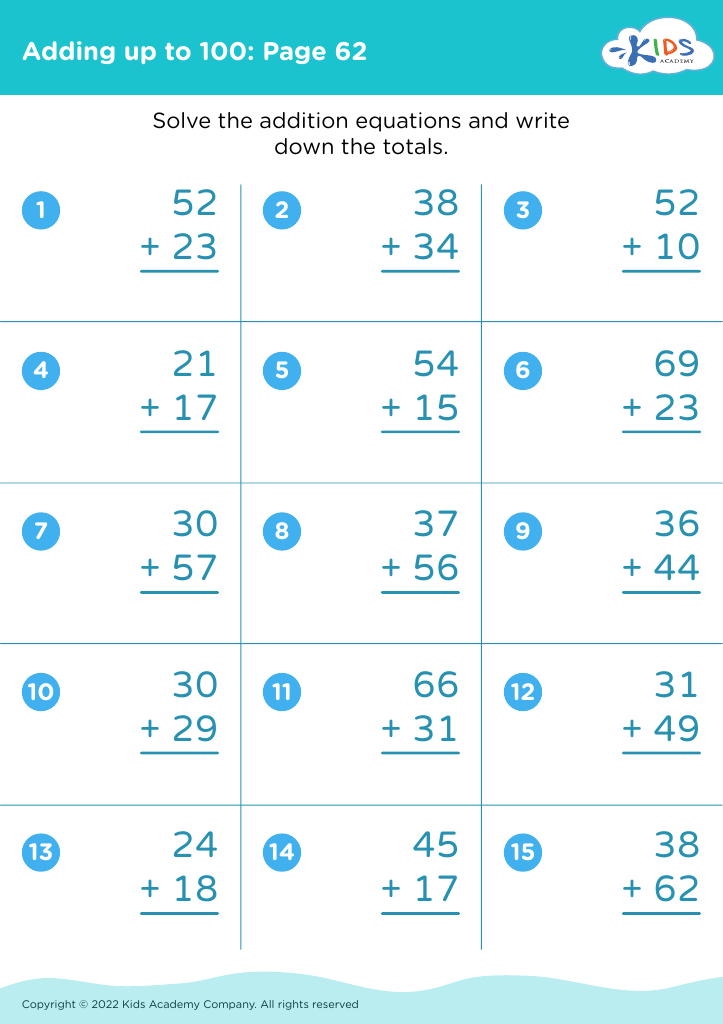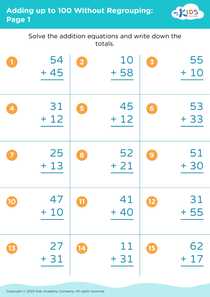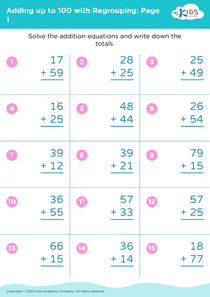Fine Motor Skills Adding up to 100 Misc Worksheets for Ages 6-7
5 filtered results
-
From - To
Enhance your child's fine motor skills with our engaging and diverse collection of worksheets designed for ages 6-7. "Fine Motor Skills Adding up to 100 Misc Worksheets" offers 100 activities that combine math fundamentals and hand-eye coordination practice. Each worksheet encourages little learners to reinforce their understanding of addition while improving their writing, cutting, and gripping skills through fun, interactive tasks. Perfect for early education settings or home learning, these worksheets are tailored to captivate young minds and promote skill development. Foster independence and confidence in your child as they unravel the world of numbers with creativity and precision!
Fine motor skills are crucial for children aged 6-7 as they significantly impact various aspects of their development and daily life. At this age, children are honing their coordination and dexterity which aids in essential tasks such as writing, drawing, and using tools. Strong fine motor skills boost academic performance; for instance, improved penmanship leads to better engagement and expression of ideas in writing.
Moreover, these skills contribute to children's confidence and independence in activities like buttoning clothes, tying shoelaces, and self-feeding, which fosters a sense of self-sufficiency. Additionally, fine motor skills are vital for participating in sports and crafts, which enhance creativity and promote social interactions.
Parents and teachers should care about developing fine motor skills as they lay the groundwork for future learning. By incorporating engaging activities like sculpting with clay, threading beads, or playing with building blocks, adults can effectively nurture these skills. Ensuring that children excel in fine motor coordination not only prepares them for academics but also enriches their overall life experience, ease of task completion, and enhances their interaction with the world around them. Ultimately, the cultivation of fine motor skills sets a strong foundation for lifelong learning and development.















